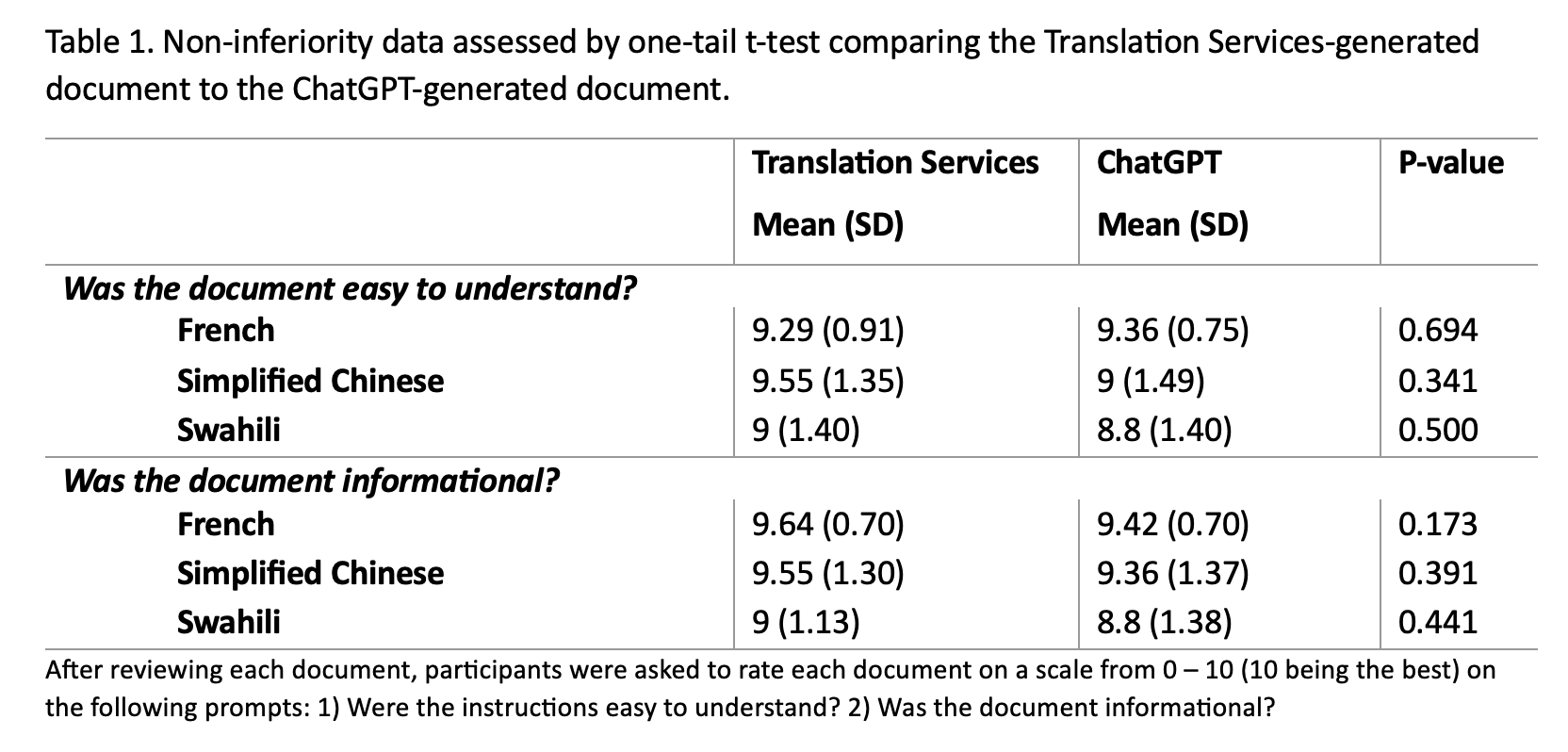Introduction Our tertiary care academic institution provides care for an increasing number of immigrants and refugees from non-English speaking (NES) countries, with a recent state-wide annual increase of 270%. New transplants often have limited proficiency in English. Conveyance of medical information is an established barrier to equity for NES patients, often encumbering patient-centered care. Medical language is complex and culturally specific. The increasing number of languages in our community, associated with unpredictable geopolitical humanitarian crises, places an urgent and fluctuating demand on interpretation and translation services (TS) and the need to quickly generate translated medical documentation. This study seeks to establish the feasibility of artificial intelligence (AI) models to generate accurate and appropriate medical documents that are non-inferior to those generated by the gold-standard hospital-affiliated TS with the goal of promoting diversity, equity, and inclusion (DEI).
Methods Standardized pediatric circumcision postoperative care instructions were submitted to the official hospital TS and to ChatGPT with a prompt for translation into French, Swahili, or Simplified Chinese understandable at a 3rd-grade reading level. An 8-question survey, including the translated documents blinded for method of translation, was distributed to speakers of these languages, respectively. The survey evaluated three opinions: ease of understanding, degree of informational delivery, and overall document preference. Preferred language, country of origin, and completion of highest education level was asked. A one-tail t-test was used to assess non-inferiority.
Results NES families represent 26% of pediatric circumcision surgeries for a 12-month period (11/1/2022-10/31/2023) for a single pediatric urology surgeon at a New England academic center. TS quoted 4-5 weeks for translation of the 600-word document and charged $144 to $173 depending on language. Twenty-three email correspondences and one meeting were required to expedite turnaround to 21 days. AI was free and responsive in real time. Survey responses from 47 people were received during the 28-day response period, with 46 meeting inclusion by completing the survey. The difference between evaluation of ease of understanding and informational quality did not cross the inferiority margin, thus establishing that the AI-generated document was non-inferior to the TS-generated document (Table 1). Fifteen respondents preferred TS, fourteen ChatGPT, and 18 felt both were equal. Overall comments stated that the AI document was less sophisticated but more natural.
Conclusion AI-assisted translation was non-inferior to translations from our institutional TS. Additionally, it was faster and more cost effective. The real-time utility of AI over slow and costly human processes can address patient equity, agency, and safety, with AI serving as a vital supplemental resource to official interpretation services. Providing appropriate and understandable written patient instructions is crucial to our institutionís mission aimed at promoting DEI irrespective of race, gender, or language. Future directions include optimizing the AI translation process by training AI on dataset terminology.
